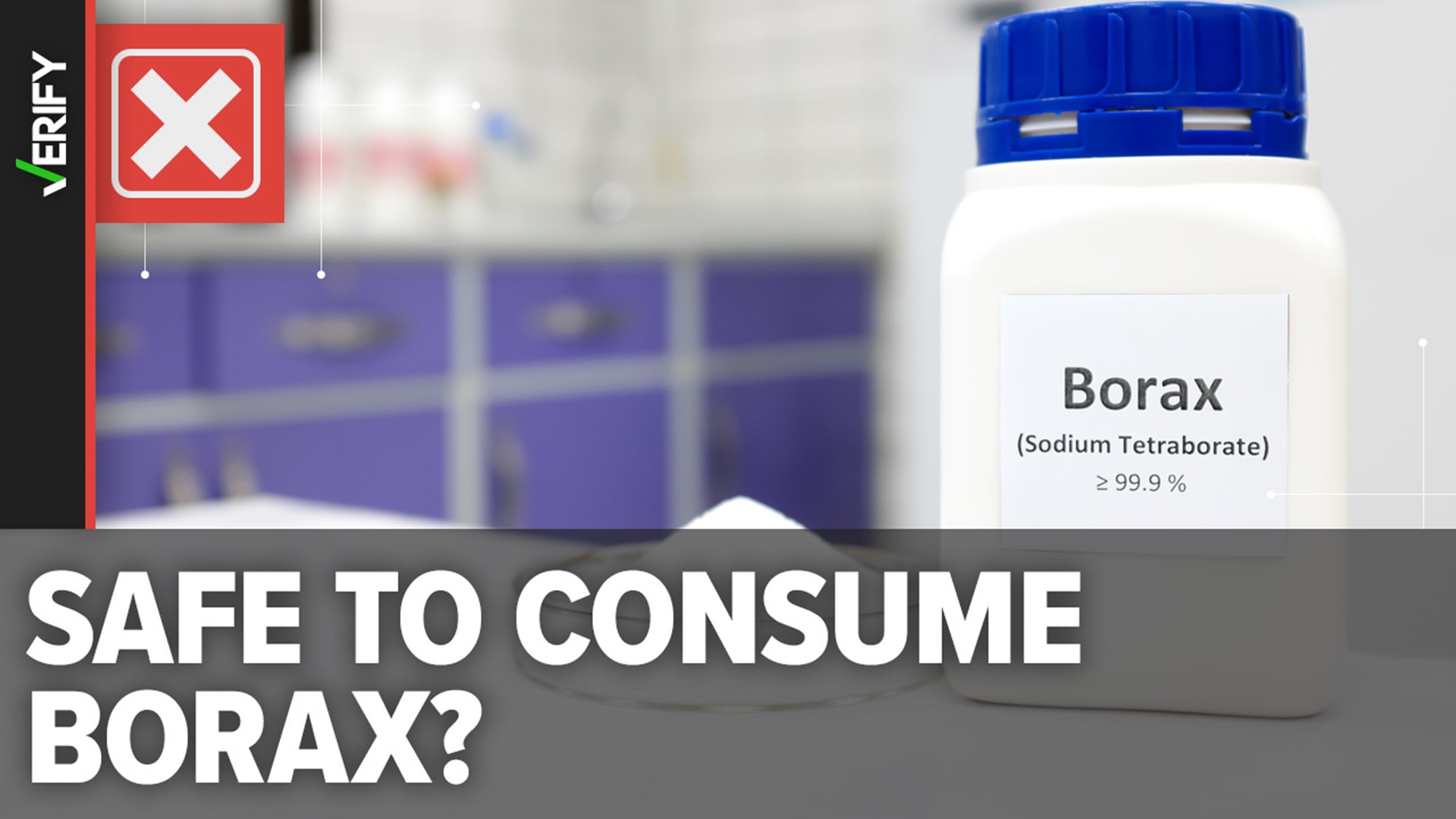A new holistic health trend has gone viral on TikTok.
People on the app and other social media platforms have claimed that if you ingest a pinch of borax, which is a product that is commonly used as a laundry detergent or cleaner, it can help with inflammation and joint pain.
The recent posts are not the first time it’s been claimed borax can serve as a natural remedy. This YouTube video, posted in 2018, says, “borax is a popular and effective natural remedy for over 100 forms of arthritis, including osteoarthritis, gout, pseudogout, and rheumatoid arthritis.”
Borax has also been touted on Facebook as being a good ingredient in a detox bath – a bath composed of different chemicals that people soak in, in order to detoxify the body.
THE QUESTION
Is it safe to consume borax as a remedy for some common ailments, as viral TikTok posts suggest?
THE SOURCES
- American Chemical Society
- U.S. Borax, which manufactures the industrial chemical
- Kelly Johnson-Arbor, M.D., medical director at the National Capital Poison Center
- The Food & Drug Administration
THE ANSWER
No, it isn’t safe to consume borax as a remedy for some common ailments
WHAT WE FOUND
Borax is an ingredient in household items like all-purpose cleaners, laundry detergents, stain removers, pesticides and herbicides. According to the American Chemical Society, it’s also an ingredient found in slime, and reacts with other chemicals to create slime’s characteristic texture.
Kelly Johnson-Arbor, M.D., the medical director at the National Capital Poison Center, told VERIFY even though borax is found in other household items or toys, it’s not safe to consume.
Johnson-Arbor said some people might think borax is safe to ingest because it is made up of naturally occurring elements, like boron, which can be found in things like plants, fruits, nuts, avocados and even red wine. But the borax you buy in the store has been tested for use as a cleaning agent, for example, but has not been tested for human consumption.
In the U.S., borax is banned for use in food products by the Food & Drug Administration. It is used in some countries to extend the shelf life of certain foods, including caviar.
Johnson-Arbor said there is no evidence to support claims it’s safe to use in foods. Further, there is no guidance on a recommended dose or amount of borax that is safe to add to your food or beverage to treat common ailments, like inflammation.
“In those TikToks I see that people are using various dosages. So anywhere from a little, to a pinch, to an eighth of a teaspoon, to just putting it into a funnel and putting it into a drink. There's a wide variety of dosing recommendations that are on TikTok and people need to know that none of those have been proven to be safe for consumption in humans,” Johnson-Arbor told VERIFY.
The U.S. Borax website also says, “U.S. Borax does not offer any product that we approve nor intend for use as a dietary ingredient, pharmaceutical and/or over-the-counter (OTC) active ingredient, nor food additive or direct additive to foods. Our NF grade products are labeled as ‘NOT FOR INTERNAL USE’ and thus are not intended for internal related applications nor as an active ingredient.”
“I definitely think that it is unsafe for people to eat borax, and we know that borax can be poisonous,” Johnson-Arbor told VERIFY. People can experience these side effects if they consume or are exposed to borax:
- Stomach irritation
- Nausea
- Vomiting
- Diarrhea
- Abdominal pain
- Skin rashes, skin pain and peeling skin, if someone bathes in borax as a detoxification method
Johnson-Arbor said social media videos or trends can be very dangerous in the spread of medical misinformation. People can edit the videos to give the appearance they are consuming borax, they could not be a licensed physician or they could be sharing information that has been proved false.
“In reality, you don't know if somebody's drinking borax and then getting sick. You don't know if they're developing skin rashes or vomiting after they drink the compound. So we need to be very careful when we take medical advice from social media,” Johnson-Arbor said.
“Just because there's a blanket recommendation provided on TikTok does not mean that that is safe for everyone at all,” she added.

